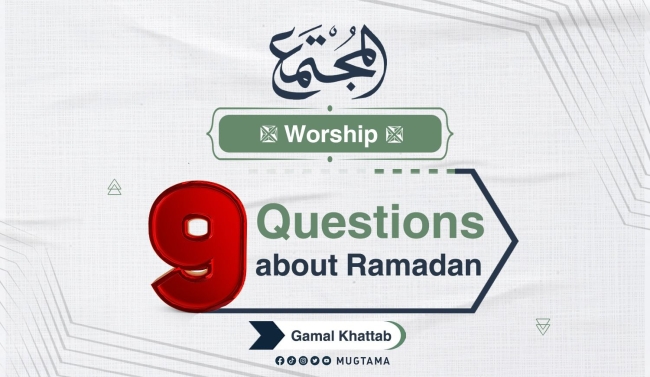Ramadan is the ninth month of the Islamic lunar calendar and is considered to be the holiest month for Muslims around the world. It is a time of fasting, prayer, reflection, and community. There are several questions about Ramadan that are important for understanding the significance of this sacred month.
- Why do Muslims fast during this month?
One common question about Ramadan is why do Muslims fast during this month?
The primary reason for fasting during Ramadan is to fulfill one of the five pillars of Islam.
Fasting helps Muslims develop self-discipline, empathy for those less fortunate, and a closer connection to God.
It is also a time for spiritual reflection and growth.
- When does Ramadan start and end?
Another question often asked is when does Ramadan start and end? Ramadan begins with the sighting of the new moon and ends with the celebration of Eid al-Fitr, which marks the end of fasting. The exact dates of Ramadan vary each year based on the lunar calendar.
- Who is required to fast during Ramadan?
One important question to consider is who is required to fast during Ramadan? Fasting during Ramadan is obligatory for all adult Muslims who are physically able to do so. However, there are exceptions for individuals who are ill, pregnant, nursing, traveling, or menstruating.
- What is the significance of the pre-dawn meal, known as suhoor?
Many people wonder what the significance of the pre-dawn meal, known as suhoor, is during Ramadan. Suhoor is a time to eat and drink before the fast begins at dawn. It is believed to provide sustenance and energy for the day of fasting ahead.
- What is the purpose of Taraweeh prayers during Ramadan?
A question that often arises is what is the purpose of Taraweeh prayers during Ramadan? Taraweeh prayers are special prayers performed at night during Ramadan. They are considered voluntary, but highly recommended, and are seen as a way to seek forgiveness, protection, and blessings from Allah.
- Why is the Quran recited more often during this month?
Another common question about Ramadan is why is the Quran recited more often during this month? Ramadan is believed to be the month in which the Quran was first revealed to the Prophet Muhammad. Therefore, reading and reciting the Quran during Ramadan is seen as an act of worship and a way to strengthen one's connection to God.
- Are there any specific rules or etiquette to follow during Ramadan?
Some people may wonder if there are any specific rules or etiquette to follow during Ramadan. Muslims are expected to abstain from eating, drinking, smoking, and engaging in sexual relations from dawn until sunset. It is also recommended to increase acts of kindness, charity, and prayer during this month.
- Why is there a special focus on giving to charity during Ramadan?
A frequently asked question is why is there a special focus on giving to charity during Ramadan? Giving to charity, known as Zakat al-Fitr, is an important part of Ramadan as it helps those in need and fosters a sense of community and solidarity among Muslims. It is a way to purify one's wealth and show compassion for others.
- How can non-Muslims show respect and support during Ramadan?
One final question to consider is how can non-Muslims show respect and support during Ramadan? Non-Muslims can show respect during Ramadan by being understanding and considerate of those who are fasting. They can also participate in community events, learn about the significance of Ramadan, and offer their support and well-wishes to Muslim friends and colleagues.
In conclusion, Ramadan is a significant month for Muslims around the world and is a time for reflection, prayer, fasting, and community. By understanding the questions and answers about Ramadan, we can gain a deeper appreciation for the traditions and customs associated with this sacred month.
Sources: Religious Scholars, Islamic studies textbooks.


